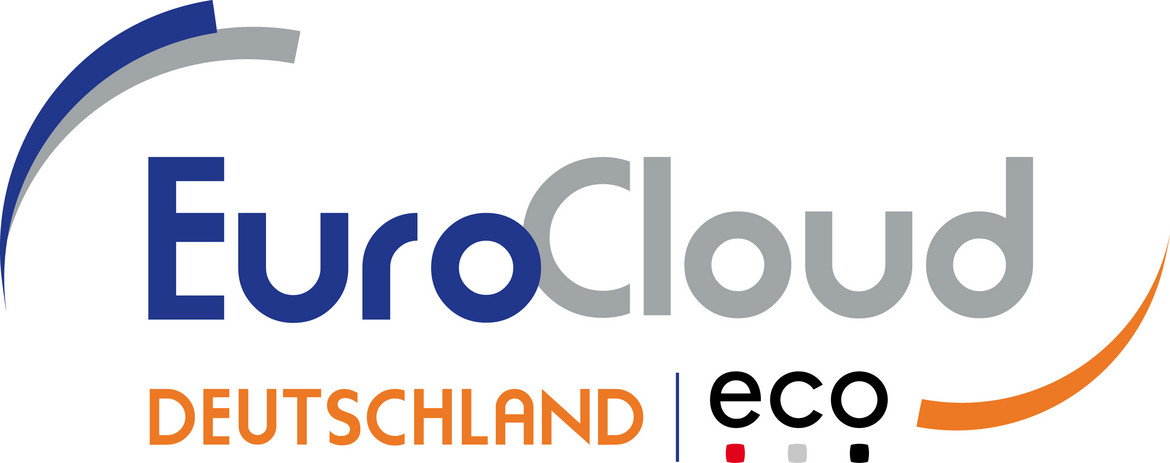Cooperation with Cloud Natives as a Time Machine for System Integrators
Dr. Nils Kaufmann, Bernd Krakau, and Felix Höger talk to Thomas Sprenger about how system integrators and cloud natives complement each other.

© wildpixel | istockphoto.com
The clock is ticking for medium-sized system integrators: Seven out of ten business customers are already in the cloud. However, as the most critical point of contact for IT matters, the system integrators they trust cannot answer even simple questions about AWS, Azure & Co. Should traditional IT providers cooperate with cloud native service providers, or are they jeopardising their position as trusted advisors? In this interview, Dr. Nils Kaufmann, Director at EuroCloud Native, and the two EuroCloud board members Bernd Krakau and Felix Höger from the system integrators initiative Channel2Cloud explain how system integrators and cloud natives complement each other optimally.
eurocloud.de: In SMEs alone, almost three-quarters of companies used services from the cloud in 2020. In a survey conducted by ISG and EuroCloud Native, 85 per cent of the IT decision-makers surveyed consider collaboration with specialised cloud service providers, so-called cloud natives, to be indispensable. Will this make traditional IT partners, the system integrators, obsolete for medium-sized companies?
Bernd Krakau: In terms of cloud maturity, a lot has happened in the channel in recent years, at least with the large system integrators. They are strengthening their cloud competence by setting up their own specialist departments or inorganically through acquisitions and investments. Small and medium-sized providers, on the other hand, are still having a hard time with cloud transformation.
Felix Höger: This is understandable. No provider will lead on-prem customers to the public cloud on their own initiative. The impetus clearly comes from the customer’s side. Medium-sized system integrators must become capable of delivering hyperscalers. However, they have neither the capital for acquisitions nor the brands to compete for the rare cloud experts in the market.
Dr. Nils Kaufmann: System integrators have not often planned ahead and have dealt with requests for cloud services in a rather operational and opportunistic manner in order not to lose customers. There is a lack of a long-term strategy and systematic development of own teams. Therefore, the cloud remains a blank space in the portfolio.
Can system integrators fill competence gaps through partnerships with cloud natives?
Krakau: Once again, the pioneers here are the system integrator groups. Their market weight could test such cooperation more impartially. Cooperation with cloud natives would be particularly fruitful for medium-sized system integrators. These platforms are expected to add more value to major cloud platforms in the short term.
What skills do cloud natives bring to the table?
Kaufmann: Cloud native companies offers us expertise in microservices and container technologies, among other benefits. They form the backbone for the next generation of software solutions. For instance, there are methods for agile software development and close integration with software operations, keyword DevOps and continuous integration, delivery and deployment. Most importantly, cloud natives solve IT problems in a new way.
What would be an effective division of tasks between system integrators and cloud-native providers?
Höger: Cloud natives bring in the specialised technical knowledge, and the system integrators provide the customer contact. The channel’s business model is geared to lasting customer relationships. For cloud services, there is also a reliance on managed services, i.e., again on a long-term service relationship.
Kaufmann: Cloud natives focus on project business. As experts in data analysis, big data, data lakes or software development. In fact, they solve individual problems and then move on to the next task. By nature, they are not familiar with service business based on recurring revenues. In the best case, they profit from commissions derived from the customers’ infrastructure consumption on the cloud platforms. That is why both partners complement each other optimally.
What risk do system integrators take with such cooperation?
Höger: That’s the point. Cloud natives operate asset-light, i.e. without their own infrastructure. There is no conflict of objectives with the delivery model of a system integrator, i.e. sales, integration and operation. There is no hidden agenda, no poaching of customers, because both partners offer different and, above all, complementary services. Together, they shape a whole in cloud projects.
Kaufmann: Partnerships with cloud natives as an extended workbench enable the SME channel to learn at low risk through practice. Cloud natives are specialists and not generalists. A cloud native never becomes a system integrator 2.0.
Does a system integrator in this constellation still require its own cloud expertise in order to continue to manage customer contact?
Krakau: Let’s take an everyday example: One company is considering a 300-server migration to Amazon AWS. This raises questions such as: How much will it cost? How long will it take? Is this the right platform? However, the system integrator has no say in the matter. The necessary knowledge can’t just be googled. The Trusted Advisor disgraces themselves and loses the job even before they can get support. Thus, it doesn’t mean just doing everything the way we used to, but knowing a few cloud natives just in case.
Höger: The system integrator has to master the basics and build up an overview of the hyperscalers. Fortunately, initial inquiries are usually comparatively abstract and not rocket science at this point. A system integrator has to at least be able to have a say in order to find the right partners for the implementation later on. That is how the role of Trusted Advisor is claimed; the partner customers always approach first when they have IT questions.
What would be necessary basic knowledge for the channel?
Kaufmann: An example would be identity and access management to manage accounts in the public cloud. As a system integrator, this is vital to avoid any loss of exclusive customer contact. After all, the profile is the linchpin for all services on a cloud platform.
Is there sufficient business left for the channel in the long term?
Krakau: Retail business and infrastructure services are losing their importance as main pillars for the channel. The cloud is making IT infrastructure more and more of a commodity. Yet IT revenues are not simply migrating to the cloud. This step changes the entire IT business. Even for the hyperscalers. In the past, the public cloud was virtualisation of infrastructure and today, it is primarily Platform as a Service and Serverless Computing. Software architecture is becoming increasingly important, not IT infrastructure.
Kaufmann: The digitalization of processes and the creation of value from data are moving into customer focus. The paradigm shift on the part of the cloud natives is being observed. Their tasks are expanding from linear software development in the direction of application modernisation, as confirmed by a EuroCloud member survey. However, the channel still has the broadest and deepest access to customers in the market, especially in the SME segment. This is the chance. The channel is still needed – if it adapts.
Where do you see the new role for system integrators?
Kaufmann: This is already evident in the sales pitch: What used to be sales is now in-depth IT consulting. This requires other competencies. The change continues in operations: There is no longer a need for a software package to be installed in the data cloud and to then use it unchanged for years. Software breaks down into many small micro-processes that are constantly being developed. Year after year, hyperscalers release thousands of new or improved microservices and the transformation never stops. However, 24×7 remains an issue while multi-cloud management is being added. A lot of scripted stuff means huge dynamics and a continuous need for optimisation. Who keeps an overview for customers in this maelstrom? This can and should be the responsibility of a system integrator as a trusted advisor.
After retail, IT outsourcing, and managed services – which business model should the channel focus on in the cloud?
Höger: Once you are on cloud platforms, nothing is static anymore because everything evolves as fast as it could in a time machine. It is a completely new setup. The problem is that there is still no optimal IT business model on which providers can build high-margin services. When something changes in the IT setup, is that a project or does it fall under recurring revenues? New requests cannot be billed endlessly through consulting hours. The industry has not yet found the philosopher’s stone here.
Obviously, limiting oneself to just the relationship management of customer accounts would not be enough for system integrators in the long run. In the trio of trusted advisor, implementer and hyperscaler, one is too many. The channel must build up its own cloud implementation competence. System integrators become generalists for the cloud while cloud natives solve specific and niche tasks. The cooperation with cloud natives acts like a time machine for the go-to-market strategy of every system integrator, because it means fast delivery capability and gets newcomers straight into the topic.
How do system integrators find the appropriate cloud natives?
Krakau: With their own resources, system integrators can hardly obtain a neutral overview of the market. The number of cloud native service providers in Germany is still small. In addition, there is a lot of cloud-washing in the market. Even the partner overviews of the hyperscalers are not clear-cut, because one quickly ends up with conventional IT providers and the competition.
Höger: At the EuroCloud association, decisive preparatory work has been done and, under the leadership of Nils Kaufmann, we have connected the key players in the market. Through the EuroCloud Native initiative, we offer exclusive access to real cloud natives. Even the hyperscalers are on board.
Krakau: What could be more obvious than to connect the cloud native network with that of our system integrator initiative? Channel2Cloud. Interested parties are welcome to contact us – Dr. Nils Kaufmann, Felix Höger or Bernd Krakow– via LinkedIn.
Thank you for the interview!
Please note: The opinions expressed in Industry Insights published by dotmagazine are the author’s own and do not reflect the view of the publisher, eco – Association of the Internet Industry.








